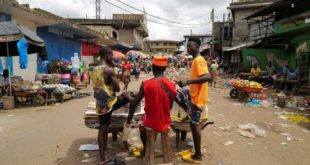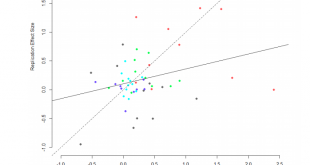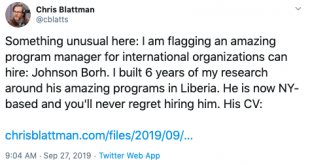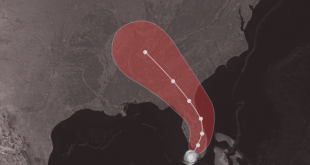Erstmals haben Forscher gezeigt, dass Verhaltenstherapie bei Erwachsenen mit krimineller Vergangenheit auch 10 Jahre später noch wirkt: Im Durchschnitt konnten so 338 Straftaten verhindert werden – pro Person. Strassenverkäufer in Liberia, Juni 2021. Zohra Bensemra / ReutersWer in einem Umfeld von Gewalt aufgewachsen ist, ändert sein eigenes kriminelles Verhalten selten. So lautet die gängige Meinung. Auch Forscher sagen, antisozialem Verhalten sei im Erwachsenenalter schwer...
Read More »Eight weeks of therapy, plus some cash, can change the lives of violent men
Placeholder while article actions loadI work with violent young men, from Africa to the Americas — guys so far into lives of crime that a natural reaction is hopelessness. If, 10 years ago, you told me that eight weeks of therapy plus a little cash could turn a significant proportion of them away from that life, I’d have scoffed. But it’s true — as three colleagues and I demonstrated in a new working paper. What we learned in Monrovia, Liberia, holds the potential to change the way America...
Read More »A study gave cash and therapy to men at risk of criminal behavior. 10 years later, the results are in.
What if someone told you that you could dramatically reduce the crime rate without resorting to coercive policing or incarceration? In fact, what if they said you could avert a serious crime — a robbery, say, or maybe even a murder — just by shelling out $1.50? That’s such an incredibly good deal that it sounds too good to be true. But it’s been borne out by the research of Chris Blattman, Margaret Sheridan, Julian Jamison, and Sebastian Chaskel. Their new study provides experimental...
Read More »Gangsters want to be good people too
Alex Tabarrok had a great interview on Ezra Klein’s podcast. A lot of it is on what we learn from Mancur Olson about the current capture of US politics by interest groups. Whether it’s property developers or wealthy homeowners or poor renters or big oil, or whatever—these are groups that would trade off $100 of societal benefits for $1 to themselves. What struck me is how, afterwards, Tabarrok reflected on the moral economy, not the political economy, of this rent-seeking: I was especially...
Read More »IPA’s weekly links
Guest post by Jeff Mosenkis of Innovations for Poverty Action. Cool panel on Wednesday, now that schools have gone remote, how to assess remotely if kids are learning. And another on Thursday including Anne Karing of Princeton, Jonathan Robinson from UC Santa Cruz, presenting new data on covid impacts in Liberia, Sierra Leone, and Malawi University of Cape Town economist Grieve Chelwa has been critical of RCTs in the past so my colleague and were braced for his online discussion at Africa...
Read More »IPA’s weekly links
Guest post by Jeff Mosenkis of Innovations for Poverty Action. A few years ago, Liberia, whose educational system has been troubled to say the least, tried an experiment. In the face of under-resourced and underperforming public schools, they wondered if private education providers could run public schools better than the government was? The country announced that it was going to outsource the whole country’s schools to one American company, but after public outcry the plan was scaled back...
Read More »IPA’s weekly links
It’s complicated, trust me, see below.Guest post by Jeff Mosenkis of Innovations for Poverty Action Two Blattman-related things, for researchers and aspiring researchers:IPA’s Peace and Recovery program is accepting research proposals, on topics such as war, peace, electoral violence, state-sponsored violence, terrorism, forced displacement, natural disasters, and recovery from all the above.They fund: “full randomized trials, pilot studies, exploratory and descriptive work, travel grants,...
Read More »IPA’s weekly links
Guest post by Jeff Mosenkis of Innovations for Poverty Action First, a word from Chris (click the linked screenshot below for the whole interesting story): Here’s that link to his CV (including a graduate degree from Columbia). But you can hear him and Chris on Freakonomics talk about the program he developed in Liberia. The American Economic Association released its full report on the professional climate survey it ran and it’s not good. Ben Casselman from The New York Times, who has done a...
Read More »IPA’s weekly links
Guest post by Jeff Mosenkis of Innovations for Poverty Action Thanks for being patient with the intermittent links schedule over the summer, I expect to have some catch-up ones included over the next weeks. Congrats to Mauricio Romero, Justin Sandefur, and Wayne Sandholtz, on their forthcoming article in American Economic Review, (ungated) on the Partnership Schools for Liberia (PSL) program, a public-private partnership testing how a variety of private school operators compared to...
Read More »IPA’s weekly links
WHO measles surveillance dataGuest post by Jeff Mosenkis of Innovations for Poverty Action Thanks for being patient while the links were sleeping, expect some summer disruptions of schedule as wellMeasles cases are up 300% over last year with outbreaks in the U.S., Europe, The Philippines, Myanmar, and several African countries. I heard a PSA that adults vaccinated before a certain period (when the vaccine process changed) might no longer be immune. So I got checked and sure enough I wasn’t,...
Read More » Heterodox
Heterodox




